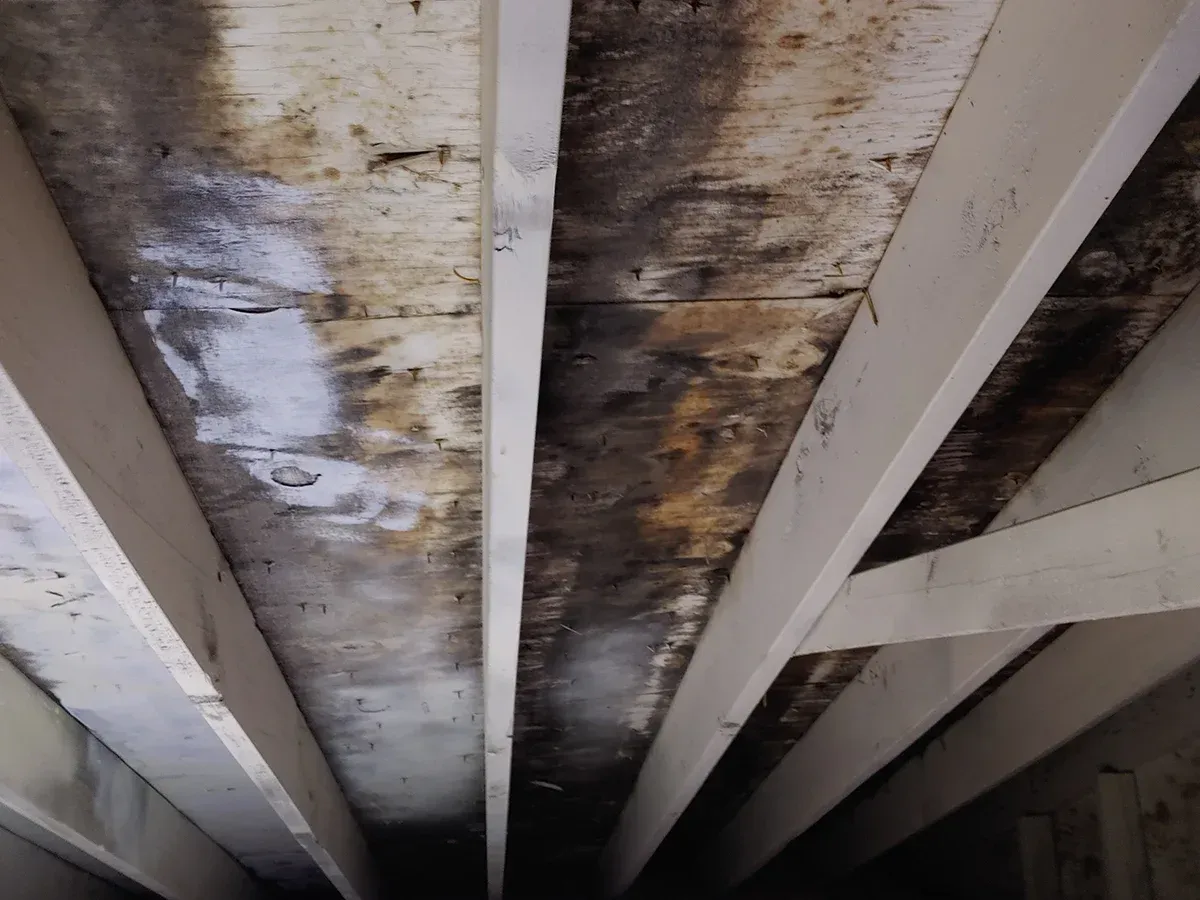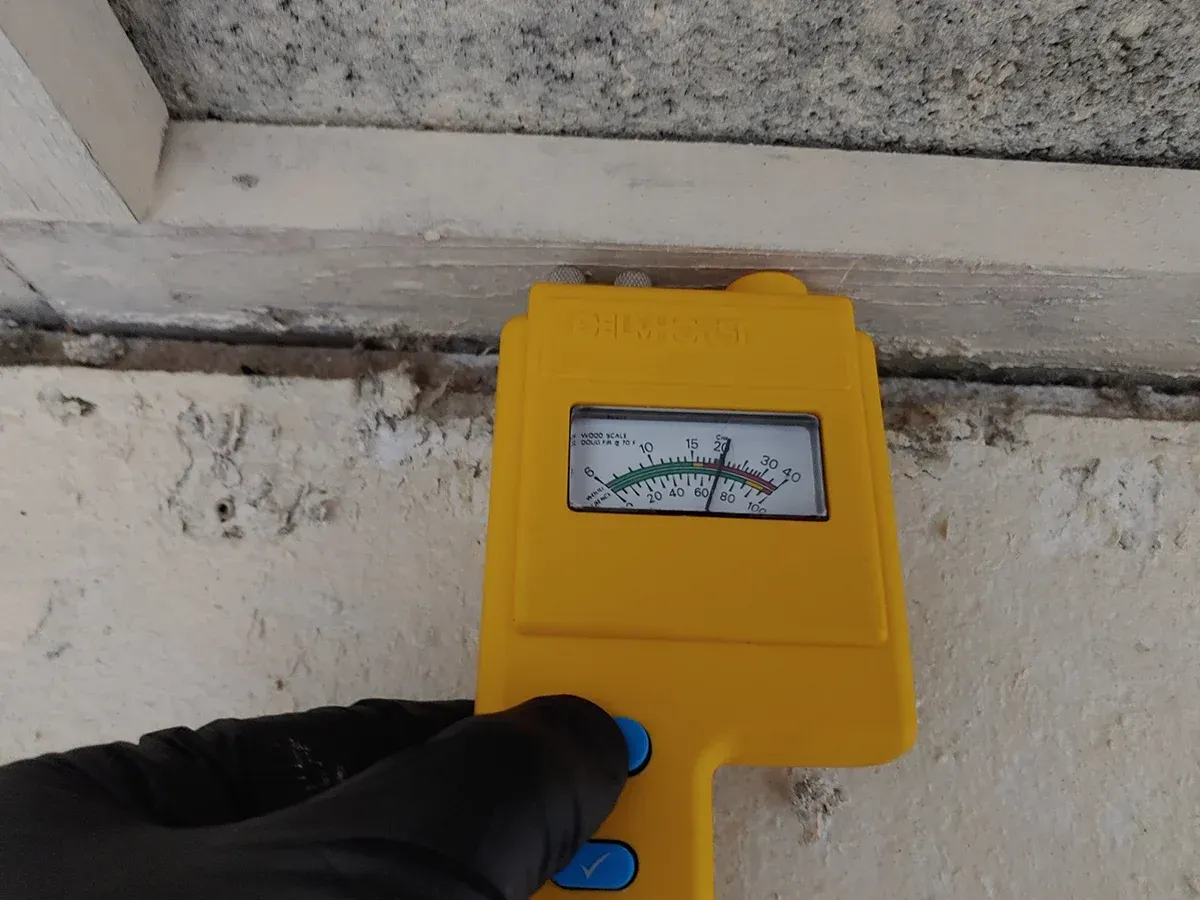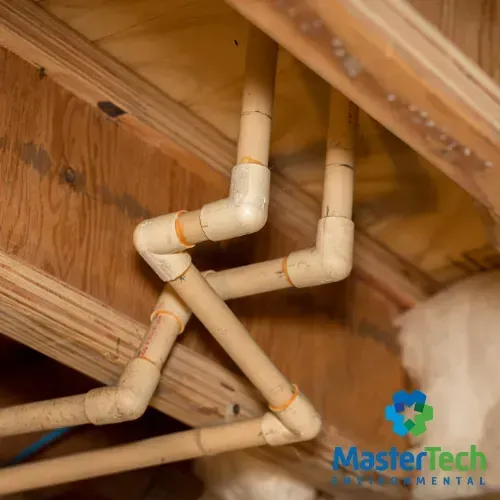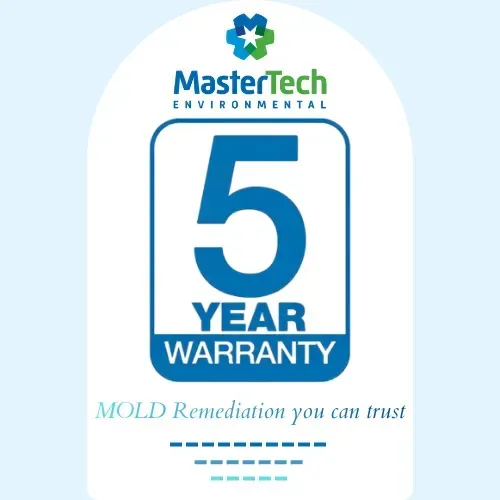The Salt Air Trap—How Myrtle Beach Houses Collect Moisture and How We Break the Cycle

If you live in a Myrtle Beach house, you know the air can feel like a warm towel. That same air tries to soak your attic joists and crawlspace beams every day. We see it in homes across Horry and Georgetown counties: long runs of muggy weather, salt on every surface, and interiors that never quite dry out unless someone is actively managing moisture. On July 14, 2024, for example, Myrtle Beach tied its all-time dew point record at 85°F, a number that explains why indoor surfaces sweat so easily in summer.
At Mastertech Environmental of Myrtle Beach, our job is to protect single-family homes from the constant dampness. We inspect, test, and remediate mold. But first, we teach. Because if you understand why your house gets wet, you can keep it dry.
What Makes a Myrtle Beach House “Sweat?”
Humid air carries enough water to keep materials damp even without leaks. The U.S. EPA advises keeping indoor humidity below 60%—ideally 30–50%—to prevent mold. That’s more than a comfort tip; it’s a risk threshold. When indoor air sits above that line, condensation and damp surfaces become routine.
There’s a second number we watch on inspections—indoor dew point. If the dew point stays at or above 60°F, moisture can continually condense on cool materials, and mold risk rises. This is why ASHRAE Standard 62.1 requires designs capable of keeping indoor dew point below 60°F in mechanically cooled buildings. In hot, humid climates like ours, that target is the difference between a house that dries and a house that slowly gets wetter.
Salt in the Air Keeps Surfaces Damp
Sea breeze air brings microscopic sea salt particles indoors. Those particles are hygroscopic; they attract and hold water. Lab work published in Nature Communications shows that inorganic sea salt aerosols absorb moisture even at modest humidity and begin fully dissolving near typical coastal indoor conditions. The result in plain language: a fine salt film on fans, windows, and coils that stays clammy, slows drying, and can even rewet surfaces overnight.
We account for this on every coastal inspection. If you’ve ever wiped a window frame at breakfast and felt it already tacky again by evening, you’ve met hygroscopic salt.
Vented attics invite outdoor humidity. In hot, humid climates, research shows attic dew point can exceed outdoor dew point because framing lumber “breathes” moisture back into the air after sundown. Building Science Corporation documented attic dew points near 85°F while outdoors sat closer to 75°F—conditions that make condensation on ducts and nail tips almost inevitable. That is why we so often find light spotting on roof decking and dark rings around supply boots in summer.

Your HVAC vs. Ocean Air
In beach neighborhoods, outdoor condensers and indoor coils live hard lives. Salt corrosion can chew through aluminum fins and copper tubes fast; trade journal reporting documents >50% performance loss in a single year for unprotected coils in seaside settings, with occasional coil failures in under a year. Reduced heat transfer means less dehumidification per hour of run time, which is precisely what you don’t want here. Coatings and “marine grade” components can help, and they matter more on the coast than inland.
Controls matter, too. Many homeowners flip the thermostat fan to ON, thinking more air equals drier air. In hot, humid homes, the opposite often happens: the blower re-evaporates water sitting on the coil and pushes it back into rooms. Florida Solar Energy Center field work repeatedly shows higher indoor humidity with the fan on compared with auto. Keep the fan on AUTO unless your HVAC designer has provided a dedicated dehumidification control strategy.
Where Myrtle Beach Houses are Most Vulnerable
1. Crawlspaces: Vented crawls let muggy outside air flood in and cool against soil and ducts. Over time, the underside of floors and joists can stay near saturation. DOE Building America and Advanced Energy field studies in the Southeast find that closed/conditioned crawlspaces stay drier and reduce energy use compared with traditionally vented crawls. If you own a raised foundation home, this is often the single most effective moisture fix.
2. Attics: Humid night air plus cool ducts equals condensation. Sealing the attic into the conditioned envelope (properly detailed and code-compliant) can block that humid air and protect ducts. If that’s not feasible, air seal the ceiling plane and insulate/air seal ductwork meticulously.
3. Bathrooms and Kitchens: Steam adds to a house already fighting humidity. Source exhaust is non-negotiable; EPA recommends venting moisture-generating appliances outdoors and keeping indoor humidity under 60%.
4. HVAC Cabinets and Ducts: Long “clammy” run times or short cycling can keep coils wet and ducts sweating. Right-sized systems and, where needed, supplemental dehumidification maintain safe dew points when the weather is extremely humid.
As inspectors, we check each of these zones with moisture meters, thermal imaging, and targeted air/surface samples when warranted. We’re looking for patterns, not just spots.
When to Call Us in for Mold Remediation in Myrtle Beach
Call MasterTech Environmental of Myrtle Beach if any of these hold true in your house.
· Your indoor dew point stays above 60°F or RH above 60% for more than a few days, even with AC running.
· You smell mustiness or see recurring spotting in closets, on attic sheathing, or under the floor.
· The crawlspace feels damp to the touch, insulation sags, or metal “sweats.”
· You’ve had a leak, storm intrusion, or HVAC condensate spill that wasn’t fully dried within 48 hours.
We’re a locally owned inspection and remediation company serving Horry and Georgetown counties. Our team uses moisture mapping, thermal imaging, and accredited lab analysis to verify what’s happening in your home. We remediate to established standards and help you harden the house against our coastal climate. That’s the path to a fix that lasts.



